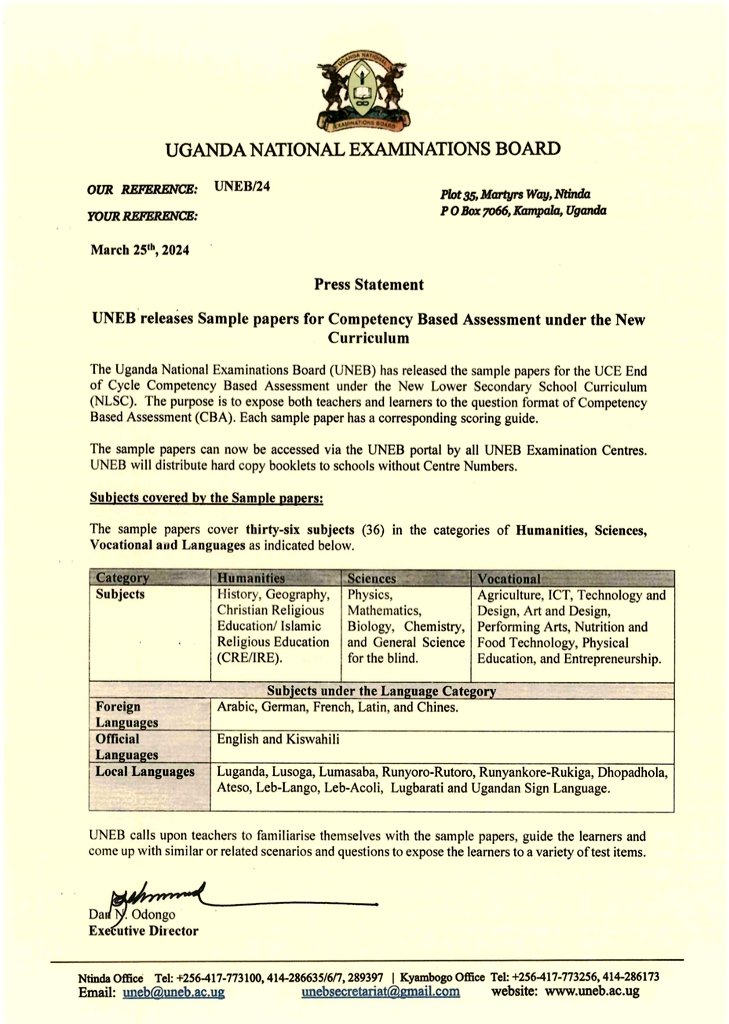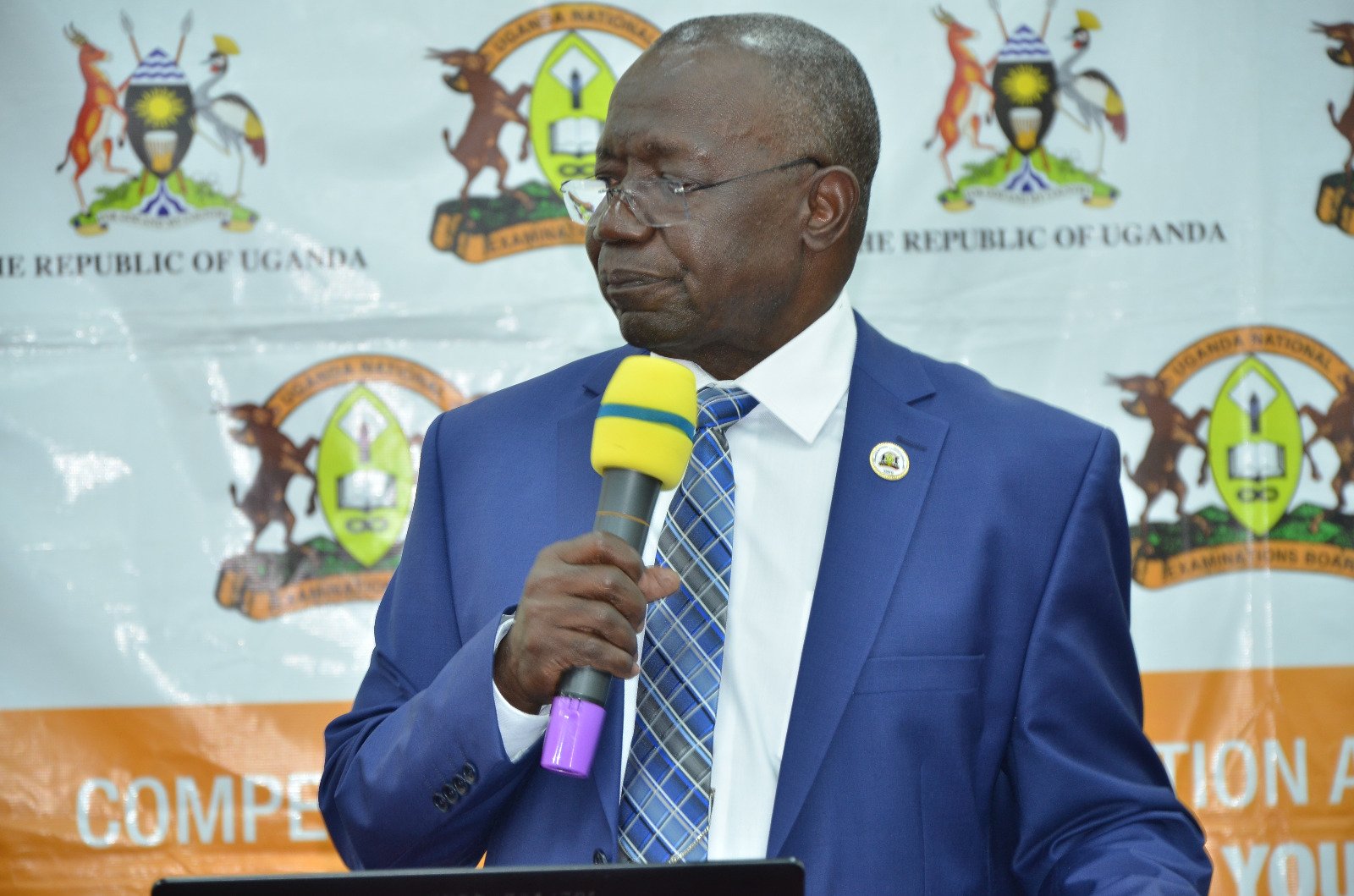The Uganda National Examinations Board (UNEB) has issued sample papers for the UCE End of Cycle Competency Based Assessment under the New Lower Secondary School Curriculum (NLSC).
In a statement released on Monday, March 25, 2024, by UNEB Executive Director Dan Odongo, the release aims to familiarize both teachers and learners with the question format of Competency Based Assessment (CBA), providing a corresponding scoring guide for each sample paper.
The sample papers cover a comprehensive range of subjects totaling to 36, including humanities, sciences, vocational studies, and languages. They are accessible on the UNEB portal for all examination centers and will be distributed in hard-copy booklets to schools without center numbers.
Odongo emphasized the importance of teachers familiarizing themselves with the papers and marking guides to expose learners to a variety of test items.
Subjects to be tested include history, geography, religious education (Christian and Islamic) for humanities; chemistry, physics, biology, mathematics, and general science (for the blind) for sciences; and agriculture, ICT, technology and design, performing arts, nutrition food technology, physical education, and entrepreneurship for vocational subjects. International languages such as German, Chinese, French, Latin, and Arabic, as well as national languages like Kiswahili and English, and local languages including Ateso, Lumasaba, Luganda, Lusoga, Runyoro-Rutoro, Dhopadhodola, Leb-Lango, Leb-Acholi, Lugbarati, and Ugandan Sign Language are included.

Under the new curriculum, students at Senior One and Two will study 12 subjects, with 11 compulsory and one elective from an optional menu. At levels Three and Four, students will exit with a minimum of eight or a maximum of nine subjects, with seven compulsory. The curriculum aims to meet learners’ needs by focusing on skills training and enhancement.
The National Curriculum Development Centre has reduced teaching subjects from 43 previously to enable teachers compile learners’ achievements under Formative Assessment over the four-year cycle. These scores will contribute at least 20 percent to the final national examination grading. Changes include the addition of Chinese language to foreign languages and making Kiswahili, Physical Education, and entrepreneurship compulsory for Senior One and Two students.
The new curriculum aims to provide 21st Century skills such as critical thinking, creativity, collaboration, communication, information literacy, ICT, and flexibility.
However, concerns remain about the implementation amidst facility inadequacies in many Ugandan schools, particularly in rural areas. Necessary equipment and knowledgeable trainers are also essential for fostering creativity, especially in ICT and natural sciences, yet they are lacking in most rural schools, which serve as knowledge hubs for young people.




